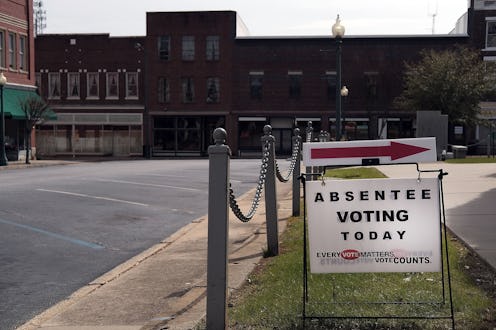News
Kryptonite Didn't Put The Super In Superdelegates
With Iowa and New Hampshire behind America, there are two more big primary states coming up to kick off the official primary season for the entire country. South Carolina's primaries take place on Saturday for the GOP and the following Saturday, Feb. 27, for the Democratic Party. Nevada also holds its Democratic caucus on Saturday and on Tuesday for Republicans. And with primaries starting to heat up and candidates dropping out, one important thing to understand is how superdelegates and delegates are different.
With each primary that comes and goes, there is plenty of talk about how many delegates were won by each candidate, and how many superdelegates they took with them. But the defining characteristics of each category can be really confusing. For Democratic candidates, there are a total of 4,051 delegates that can be won during the primaries — and of that number, 712 are superdelegates that will be at the Democratic National Convention. The Republican Party has 2,472 total delegates that they can win, and they will have 168 superdelegates.
So what's the real difference between superdelegates and delegates? Democratic delegates are determined based on each state's primary or caucus. In most cases, the delegates in each state will be allocated to each candidate in a way that is proportional to the total percentage of votes that candidate received.
Still confused? Take New Hampshire's results as an example. In New Hampshire, Bernie Sanders won 60.4 percent of the vote, and thus 15 of the total 24 delegates. Hillary Clinton won 38 percent of the vote, taking the remaining nine delegates. The amount of delegates each candidate won was proportional to their total percentage of votes received.
This is where the difference between delegates and superdelegates comes in. Superdelegates are free to support any candidate for the nomination. They are not average voters, but superdelegates are former presidents or members of Congress. The big difference between the two is that superdelegates have more freedom in who they choose to vote for. And their preferences often align with the establishment.
The delegate and superdelegate question is a bit different — and perhaps simpler — for the Republican Party. Basically, their delegates are pledged and unpledged. When pledged, delegates are — you got it — "pledged" to a specific candidate and are similar to how regular delegates work for the Democratic party. The GOP's unpledged delegates can vote for whoever they please.
Here's an interactive map of the GOP delegate breakdown by state, month, and primary:
In both cases, candidates in either party have to win a majority of the total possible delegates in order to solidify a nomination at their respective conventions. Delegates, work your magic.
Images: Giphy (1), GOP.com (1)
